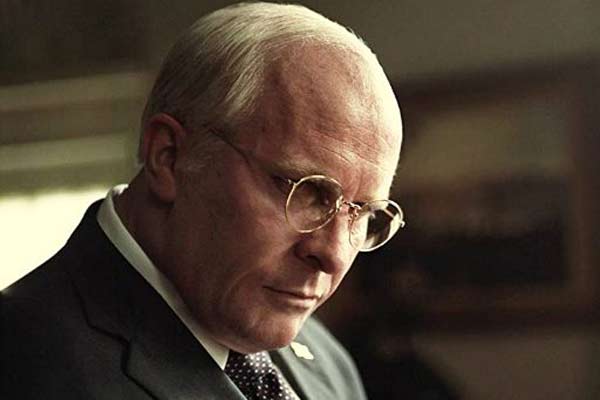After winning his first Academy Award for Best Adapted Screenplay in 2015 for ‘The Big Short’, director/writer Adam McKay is back again with his latest ‘Vice’.
Where the latter covered the Global Financial Crisis, this film faithfully follows a biographical account of former US Vice President Dick Cheney. Less an ensemble piece of many different characters, this is more a recap of one man’s career, family and legacy. With a narrator less cool than Ryan Gosling, meta-jokes less direct and a sprawling time frame ‘Vice’ has less attitude and is more sombre than ‘The Big Short’.
For some that will make for a less entertaining film but ‘Vice’ feels like a perfectly calibrated mathematical equation that builds, as it revels in the idea that life is a series of little moments that add up to big things. The moments come and go but slowly, and in unexpected ways, Adam circles back to central ideas and memories until we see the legacy of his Dick Cheney. How much is true or was as simple as what is depicted here is hard to say, but the filmmakers put forward that the legal precedents of Dick’s Vice Presidency and the policies carried out in the 9/11 era have long term effects that are still being felt today.
‘Vice’ is playful with its humour and how it is a creative piece trying to fill in the blanks and tell a story. This humour is aided by the serious performances given by Christian Bale, Amy Adams, Steve Carell, Sam Rockwell, Alison Pill and Jesse Plemons. Christian Bale gradually and easily depicts the ageing of the man into the icon we all recognise. The mannerisms and voice are dead on but the most exciting part of his performance is how he subtlety shifts Dick from a young man in awe of power to an old man wanting to hold onto it.
Cutaways to pop culture images, news footage and war are still part of the director’s bag of tricks. There are some delightful scenes including a series of conversations between Dubya and Dick that are intercut with a fish being caught on a hook and reeled in. For some of us who may recall 9/11 and the beginnings of the war in Iraq it is difficult not to have old feelings about those times come flooding back. Yet if there is a heart to the movie, it is how the former Vice President continually loves and protects his daughters.
Understanding that audiences react to the personal, Adam builds to a swirling montage where he hints at the troubles we currently face in the world and how they link back to the legacy of Dick’s time in office. In that moment he shows Dick finally choosing politics over his daughters and depicts this to be as big a tragedy as any of the far greater issues that affect us all. In the end the man famous for his heart problems is seen losing his heart both metaphorically and physically in the quest for prolonged life both politically and literally. Meanwhile the rest of us have to live in the aftermath of his decisions. Is that a criticism of unbridled power or just proof you either have it or you don’t?


